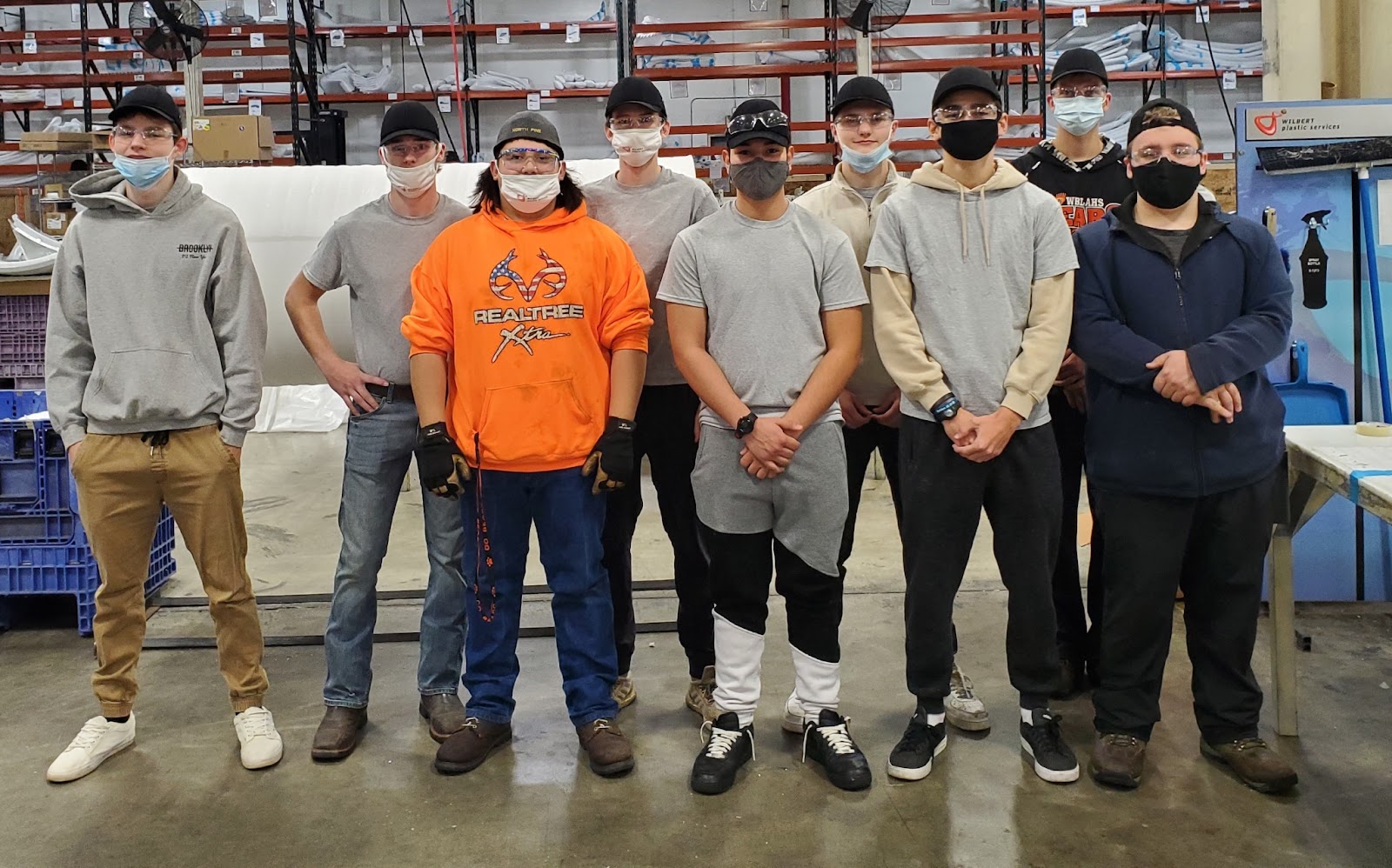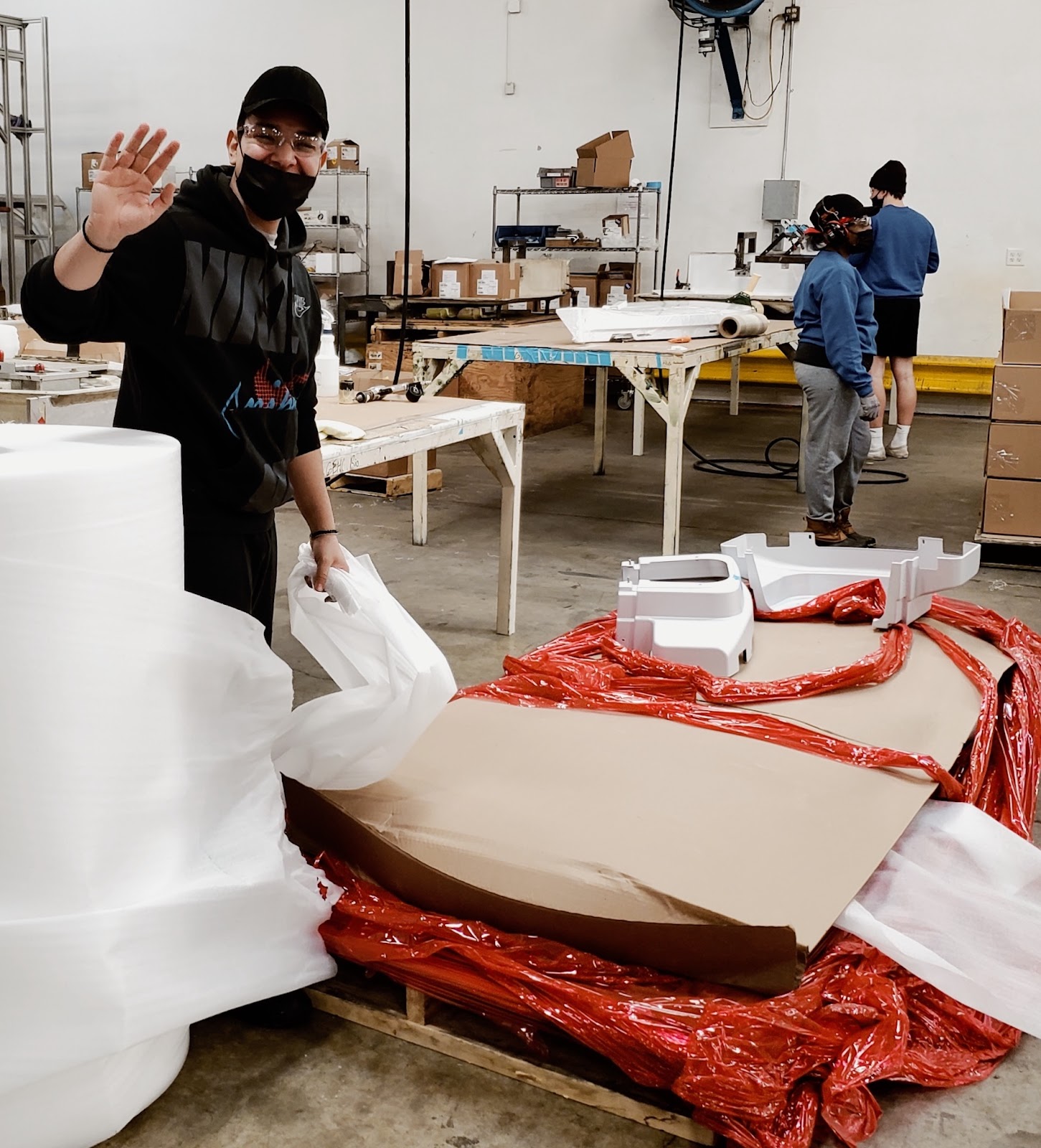
Providing Workforce Solutions in Ramsey County
August 2, 2021
Companies across the country are experiencing significant difficulties filling their workforce positions. Regardless of the industry, businesses just cannot find enough qualified people to meet their demand. In Ramsey County, employers and schools are working together to help resolve that issue.
Wilbert Plastic Services, a manufacturer of plastic components and assemblies in White Bear Lake, was one example of a company experiencing workforce shortage problems first hand.
“We were having trouble bringing in full-time workers and our assembly group was struggling to get parts out the door,” said Shelia Stejskal, Human Resource Manager at Wilbert.
This past spring, Wilbert partnered with a local Ramsey County school district as a way to resolve that problem.
Pathways to Employment
The White Bear Lake Area (WBLA) School District has a mindset to address the workforce issue as a way to educate students about the possibilities that exist. Its Career Pathways Program is designed to work with local industry partners to create and align educational opportunities based on their specific workforce needs.
“Our purpose is to help students make informed decisions about their career choices,” said Jenny Moore, the WBLA Career Pathways Coordinator.
The program was initiated about eight years ago with a grant through the Greater Twin Cities United Way Career Program with one career platform - Manufacturing. The district saw such great success that, once the grant was complete, it expanded several more platforms and hired Moore. Today, she oversees seven career platforms, including Automotive, Business, Construction, Education, Health & Wellness, Engineering & Manufacturing and Information Technology.
“Our Career Pathways staff will work with students to strategically register for classes that fit a specific platform,” said Moore. “Then, we work with them to have access to internships, summer jobs, scholarships and post-secondary plans.”
Filling Employment Demand
Wilbert adapted their work schedule to fit the times that high school students might be able to work.
They created a Monday through Thursday, 3:00pm to 8:00pm working schedule and offered the same wage they typically paid full-time entry level workers. They also provided bonuses when students referred their friends.
“We hired about 20 students for that short-shift and many converted to full-time over the summer,” said Stejskal. “Through their help and changing some existing full-time employees' hours with a shift differential, we soon were able to get parts out the door.”
“The workforce is very competitive for entry level workers, said Stejskal, and the $16.25 per hour pay rate combined with the after school shift is very attractive to students. They cannot operate our heavy machinery until they are 18 years old, but they are able to use small hand held tools to assemble parts,” she said.
Additional Student Benefits
 Moore said students are more likely to be successful in their post-secondary education plans because of their involvement with Career Pathways.
Moore said students are more likely to be successful in their post-secondary education plans because of their involvement with Career Pathways.
“We help them through real, relevant conversations to understand life is not just about their GPA,” she said. “When they see the relevance and purpose in their work, they understand the “why” in their current education.”
Stejskal said the opportunities available through the Career Pathways program is essential for the students’ futures.
“Those interested in pursuing a career in manufacturing get introduced to it working with us,” she said. “The opportunity is there for them to see if this environment is really the career path they want to take.”
Continued Conversations
The Career Pathways Program hosts its annual Employer Engagement Webinar on August 4. Moore and her team will host a conversation with more than 80 employers to inspire them to work with the program to understand the menu of options for involvement with students each school year. Moore said employers want to work with students, but do not generally know the best way to do so.
“Businesses can host field trips, create scholarships and provide paid internships,” she said. “We really focus on teaching employers how to be intentional with their conversations with students,” she said.
